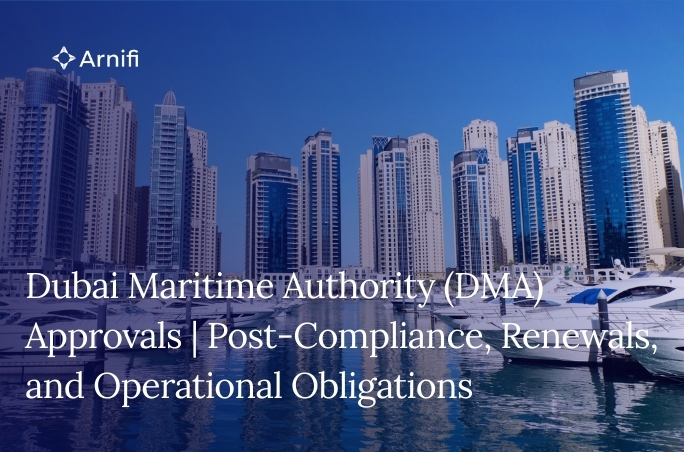Dubai Commercial Registration: A Comprehensive Guide
by Shethana Aug 27, 2024  13 MIN READ
13 MIN READ

Before starting the registration process, entrepreneurs need to follow some early steps. The first step is to define the business activity and do market research. This helps to see if the business idea is feasible. A clear business plan is very important. It should include the company’s goals, target market, competition, financial plans, and marketing strategy.
Next, entrepreneurs have to pick the right legal structure for their business. This can be a mainland company, a free zone company, or an offshore company. Each type has different legal needs and tax rules. It is a good idea to talk to legal experts or business setup professionals. They can help you understand the details of each type and choose the best one.
After choosing the legal structure and defining the business activity, entrepreneurs must follow the legal steps for registration. This usually means getting approvals from the right government agencies. These can include the Department of Economic Development (DED) or the relevant free zone authority.
Selecting Your Business Jurisdiction: Mainland vs Free Zone vs Offshore
Choosing the right place to set up a company in Dubai is very important. You have three main options: mainland, free zone, and offshore. Each has its own benefits and drawbacks:
Mainland:
- Lets businesses operate anywhere in the UAE.
- Gives access to government contracts and local customers.
- Needs a local service agent or sponsor for foreign ownership.
Free Zone:
- Allows 100% foreign ownership.
- Offers tax exemptions and customs duty benefits.
- Limits business activities to the free zone only.
Offshore Company:
- Provides tax benefits and strong privacy.
- Great for international businesses that want asset protection.
- Cannot do commercial activities inside the UAE.
Types of Commercial Registrations in Dubai
Dubai has many options for business registrations to fit different business activities. These options support various industries and needs to create a good business environment. If you are trading, manufacturing, or offering professional services, it is very important to choose the right registration type to follow the law.
Each type of registration has its own rules, eligibility criteria, and document requirements. It is helpful to get advice from legal experts or business setup consultants. They can help you understand the details and find the best choice for your business.
Mainland Company Registration
Registering a mainland company in Dubai lets you do business all over the UAE. This gives you better access to local customers and government contracts. You can also take part in more business activities than if you choose a free zone.
To register a mainland company, you need to work with the Department of Economic Development (DED). First, you will pick a trade name, decide on a legal structure, and find office space.
After these steps, you need to send an application to the DED. This includes important documents like a business plan, passport copies of the shareholders, and the lease for your office. When they approve your application, the DED gives you a commercial license. This license allows your business to operate legally.
Free Zone Company Registration
Dubai has many free zones that are a great choice for foreign investors. They offer 100% ownership and tax benefits. These zones focus on certain industries like technology, media, logistics, or trading goods.
To register a free zone company, you need to follow rules from the free zone authority. Each free zone has its own activities, fees, and ways to set up a company. Entrepreneurs should pick a free zone that matches their business activities.
The application process usually includes sending a business plan, passport copies of the shareholders, and other important documents to the selected free zone authority. Companies in free zones enjoy tax exemptions, customs duty benefits, and easier business setup processes.
Offshore Company Registration
Offshore company registration in Dubai helps foreign investors protect their assets, save on taxes, and keep their information private. These companies work outside the normal legal rules of the UAE. They are great options for international businesses and holding firms.
Offshore companies in Dubai are made in special free zones that help with company formation. These areas have different rules and benefits compared to other free zones.
Even though offshore companies in Dubai cannot do direct commercial activities inside the UAE, they can hold assets and carry out international business deals. They also enjoy tax benefits and have access to banking and financial services worldwide.
Essential Documents for Commercial Registration
To set up a business in Dubai, it’s very important to gather the right documents, no matter what business structure or location you choose. You will need passport copies of the shareholders and directors, a clear business plan, and the Memorandum of Association.
Depending on the type of company and its activities, you might also need extra documents. These can include the Articles of Association, board resolutions, and NOCs from local partners or sponsors. It is crucial to make sure all documents are verified and sent in by the deadline to prevent any delays.
Document Checklist for Dubai Business Registration
To make the business registration process smooth and easy, entrepreneurs need to carefully gather and submit the necessary documents. Here is a general list of documents you usually need:
Company Formation Documents:
- A filled-out application form.
- Copies of passports for all shareholders and directors.
- A trade name registration certificate.
- Memorandum and Articles of Association (if needed).
- A business plan that includes clear financial projections.
Licensing and Registration Documents:
- A lease agreement for office space (for mainland companies).
- A No Objection Certificate (NOC) from the right authority (if needed).
- Approvals and licenses from government bodies based on the type of business.
It is very important to ensure that all documents are accurate, complete, and properly signed to avoid delays in getting the business license and starting operations.
Special Approvals and Certifications Required
In addition to the common registration documents, some business activities in Dubai need extra approvals or certifications. These requirements help follow industry rules and keep up quality standards.
For example, jobs in healthcare, education, and finance often need a professional license from the right governing body. To get this, you may need to show certain qualifications, experience, and a commitment to ethical practices.
Also, businesses that handle food and drinks, medicines, or manufacturing might need special approvals from local authorities or health agencies to operate legally. It is important to research the specific needs for your business activity to stay compliant.
The Procedure of Commercial Registration
Dubai’s Department of Economic Development (DED) has made the commercial registration process easier than before. To register, you just need to fill out an online form, attach the required documents, and pay the fees.
After you submit your application, it will be reviewed. If everything is okay, you will get approvals. Once you have the initial approval, you will receive your trade license. This license allows you to start your business operations.
Step-by-Step Guide to Registering Your Business
To make it easier to register a business in Dubai, here is a simple guide:
1. Determine Business Activity and Legal Structure:
- Find out what your business will do and make sure it matches the allowed activities.
- Pick a legal structure: mainland, free zone, or offshore.
2. Choose a Trade Name and Submit Initial Application:
- Choose a unique and fitting name for your company.
- Register this trade name with the DED or the free zone authority.
- Fill out and hand in the initial application form along with the necessary documents.
3. Obtain Approvals, Pay Fees, and Receive License:
- Meet any extra requirements or get approvals from relevant authorities.
- Pay the needed registration and licensing fees.
- Get your business license and all supporting documents.
Obtaining Your Trade License
After you finish registering your company, the next important step is to get a trade license. This license allows you to run your business legally. In Dubai, the Department of Economic Development (DED) issues trade licenses. These licenses change based on what kind of business you are doing.
There are several types of trade licenses available. Each one is designed for specific types of business activities. Common types include commercial licenses for trading, industrial licenses for making products, and professional licenses for service-based businesses.
When you apply for a trade license, it is important to describe what your business will do clearly. Giving accurate information helps you get the right license and avoids problems in the future.
Post-Registration Steps
Once you have registered your company and get your trade license, there are important steps you must take next. These steps help keep your business running smoothly and follow legal requirements.
First, you should open a corporate bank account at a trusted bank in Dubai. If you want to hire foreign employees, you also need to start the visa process to get their work permits.
Opening a Corporate Bank Account
Opening a corporate bank account in Dubai is an important step for businesses. It helps them manage money, process payments, and build trust. There are many local and international banks with good services to choose from.
When picking a bank, think about the bank’s reputation, transaction fees, online banking options, and any special services for businesses. You will need important documents like your trade license, Memorandum of Association, and passport copies of the company’s shareholders and directors.
Each bank might have different rules and steps for opening a corporate account. So, it’s best to contact the bank or go to their branch to start the process. Keeping your company documents well-organized and up-to-date will help you open the account faster.
Visa Processing for Business Owners and Employees
If you are a foreign national looking to start a business in Dubai or hire foreign workers, it is important to know about the visa process. Dubai has different types of visas. Each type has its own eligibility criteria, stay length, and benefits.
Business owners can usually apply for investor or entrepreneur visas. These visas can give them long-term residency based on how much they invest or the type of business they run. Workers need to get employment visas, which the company must sponsor. Their eligibility depends on their skills, experience, and what the labor market needs.
The visa application process can be tricky. It involves different government agencies and requires several documents. To make it easier, it is a good idea to work with a reliable immigration consultant or ask for help from the government. This can help you get through the visa process without any problems.
Cost Considerations for Business Setup in Dubai
Understanding the costs to start a business in Dubai is very important for good financial planning. Expenses can change a lot based on several factors. These include the legal structure, the business activity, the chosen spot (mainland, free zone, or offshore), and the company’s size.
Registration and licensing fees are key costs to consider. Mainland companies usually have higher costs than free zone companies. Additionally, you should include office rent, visa fees, employee salaries, and other operational expenses in your budget.
Overview of Registration and Licensing Fees
The Department of Economic Development (DED) sets the registration and licensing fees for businesses in Dubai. The cost varies depending on the legal structure, business activity, and chosen jurisdiction.
| Fee Type | Estimated Cost (AED) |
| Mainland Company Registration | 15,000 – 30,000 |
| Free Zone Company Registration | 10,000 – 25,000 |
| Trade License | 5,000 – 15,000 |
It’s important to note that these are approximate costs, and the actual fees may vary. Additional expenses, such as trade name registration, office rent (for mainland companies), and visa processing, should be factored into the budget.
Additional Costs to Keep in Mind
While registration and licensing fees are important parts of the initial setup costs, there are other expenses to keep in mind:
Office Space:
- Mainland companies need a physical office. The rental costs in Dubai can be high, especially in busy business areas.
Visa Processing:
- The fees for visas for business owners and employees can add up. This is true if you need to sponsor many visas.
Professional Services:
- Hiring legal experts, auditors, or business setup specialists can help make the process easier but they will charge fees.
It’s important to make a full budget that includes all possible expenses. This way, you can ensure you have enough money to cover the initial setup costs and keep the business running during the first stages.
Conclusion
In conclusion, it is important to understand the details of commercial registration in Dubai. This knowledge is key for entrepreneurs who want to start a successful business in this lively city. You can choose from mainland, free zone, or offshore company registration. Each option has its own requirements and advantages. By following the clear steps provided in this guide, you can easily navigate the registration process. This includes choosing the right business area, preparing important documents, and getting necessary approvals. Don’t forget to consider registration fees, licensing costs, and other expenses when planning your business setup in Dubai. With the right preparation and understanding, you can confidently set up your business in one of the most exciting business locations in the world.
Frequently Asked Questions
What is the difference between mainland and free zone companies?
A company based on the mainland can do business all over the UAE and work with local firms. However, it may need some local ownership. A free zone company can have 100% foreign ownership and does not pay any taxes within the free zone. But, it can only work on specific activities and in areas the free zone allows. Both types of companies are separate legal businesses with different rules.
How long does the commercial registration process take in Dubai?
The time it takes to get a trade license depends on how complex the business is and how complete the necessary documents are that you submit to the Department of Economic Development (DED) or the free zone authority. Usually, getting initial approval can take from a few days to a couple of weeks. After that, you will get your trade license.
READ MORE: How to Reschedule Emirates ID Appointment Quickly!
READ MORE: UAE: Gold prices dip at week’s start – Latest Updates
About Arnifi
Arnifi is digital first Corporate service provider helping companies enter the Middle East region, starting with UAE and Saudi Arabia markets. Founded and backed by professionals from Amazon, Souq and other large companies operating in KSA – the team understands what it takes to succeed as a startup in both UAE and Saudi Arabian markets, apart from going through the setup process multiple times. Arnifi will provide a truly digital experience to entry and scale up of companies both UAE and Saudi Arabia. Discover tailored solutions and strategic partnerships that propel your business forward. Check out at – www.Arnifi.com for more details.
Also Read: Boost Your Productivity: Find Your Ideal Workspace
Top UAE Packages

Related Articles
Top UAE Packages



